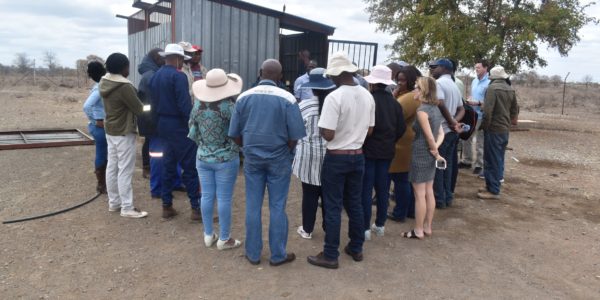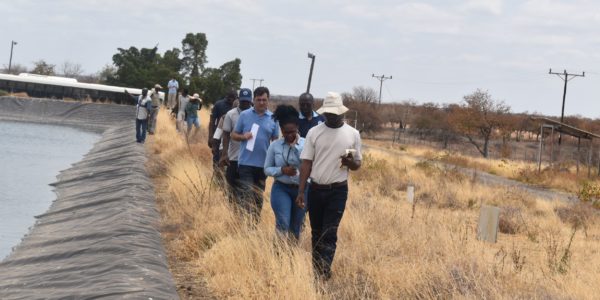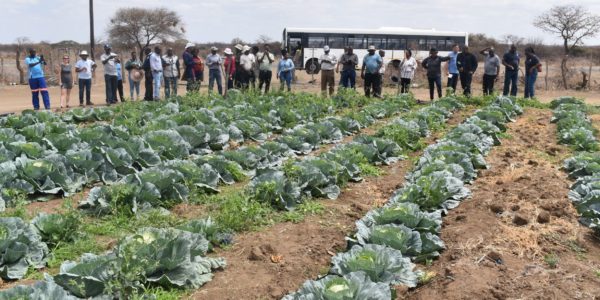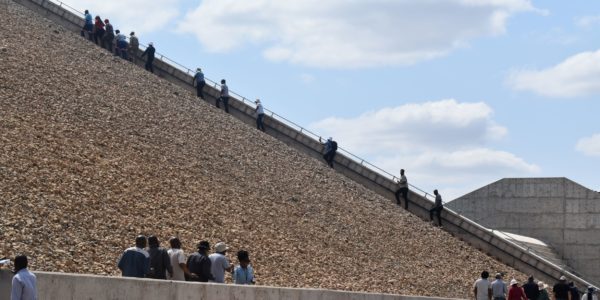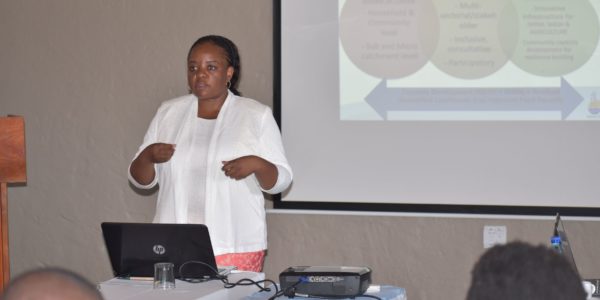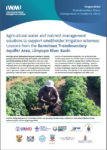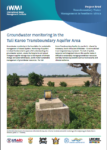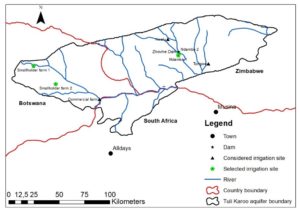Securing water sources has become a critical area of focus for the water stressed southern African region. In the Tuli Karoo System, shared by Botswana, South Africa and Zimbabwe, dams are a common feature with large dams in the Botswana portion and both large and subsurface sand dams in the Zimbabwe portion. Moreover, the shared aquifer provides an important source of water for domestic use and irrigation. Such realities highlight the growing need to increase coordination in the management of this transboundary system. Toward this end, a 3 year USAID funded project is working to strengthen cooperation on the conjunctive management of surface and groundwater in the Tuli Karoo System to improve food security and resilience.
From 2 to 4 October 2019, over 35 participants drawn from water ministries of the three countries as well as supporting organisations and partners including the Limpopo Watercourse Commission (LIMCOM), Southern African Development Community Groundwater Management Institute (SADC-GMI) and the United States Agency for International Development (USAID), attended a workshop in Francistown, Botswana organised by the International Water Management Institute (IWMI), as part of the Tuli Karoo Conjunctive Water Management Project. The workshop engaged the three countries (sharing the Tuli Karoo transboundary aquifer on the transboundary diagnostic analysis (TDA). Mozambique, which shares the Limpopo Basin with Botswana, South Africa and Zimbabwe, was also represented during the discussions and on the last day participated in a Limpopo Groundwater Committee meeting. The TDA, a data synthesis and analysis effort carried out by IWMI researchers and young professionals from the participating countries – constitutes the first integrated analysis of the shared Tuli Karoo. In between presentations and discussions, a tour of the Botswana portion of the aquifer took participants to points of interest including the Thune dam, boreholes tapping the aquifer and a smallholder agricultural farm.
Going forward, the project will seek to bring further understanding on possible solutions that can enhance water availability and food security in the mainly rural population of the Tuli Karoo System. Strengthening the monitoring of groundwater levels is one of the first steps towards getting a grip on the dynamics of groundwater usage and availability in the Tuli Karoo system. Small scale agriculture, a key socio economic activity in the region relies heavily on water availability, in this respect the project will endeavour to enhance water use efficiency in smallholder farmers. Further, the mapping of Managed Aquifer Recharge suitability and understanding recharge from large and small dams will be explored as well as the impacts of climate variability on groundwater dependant ecosystems.









